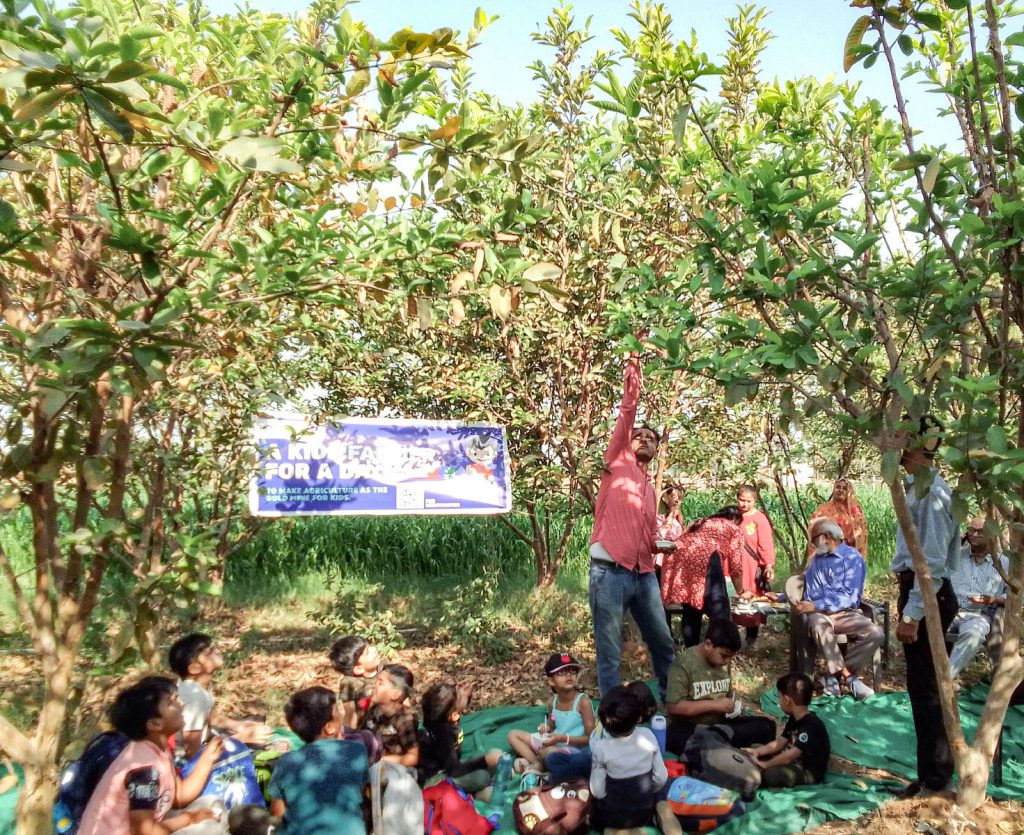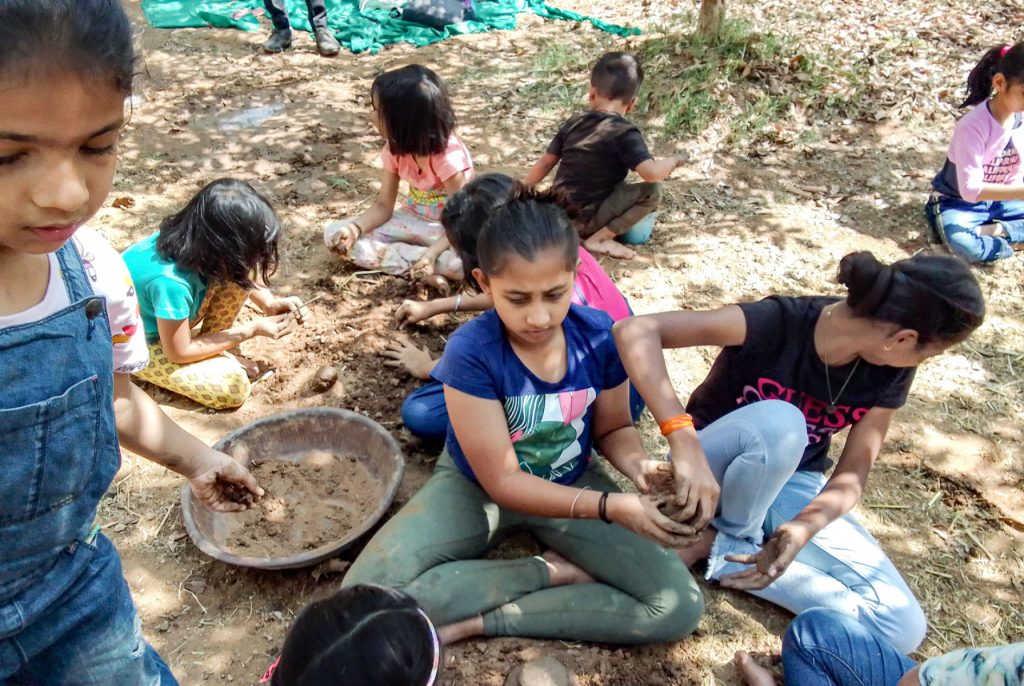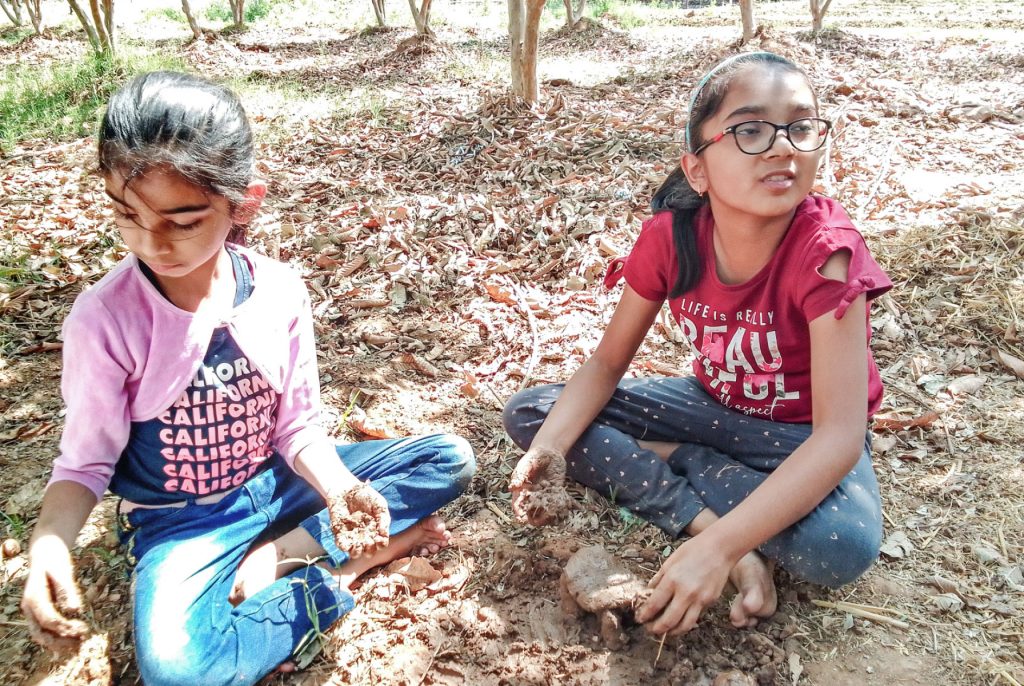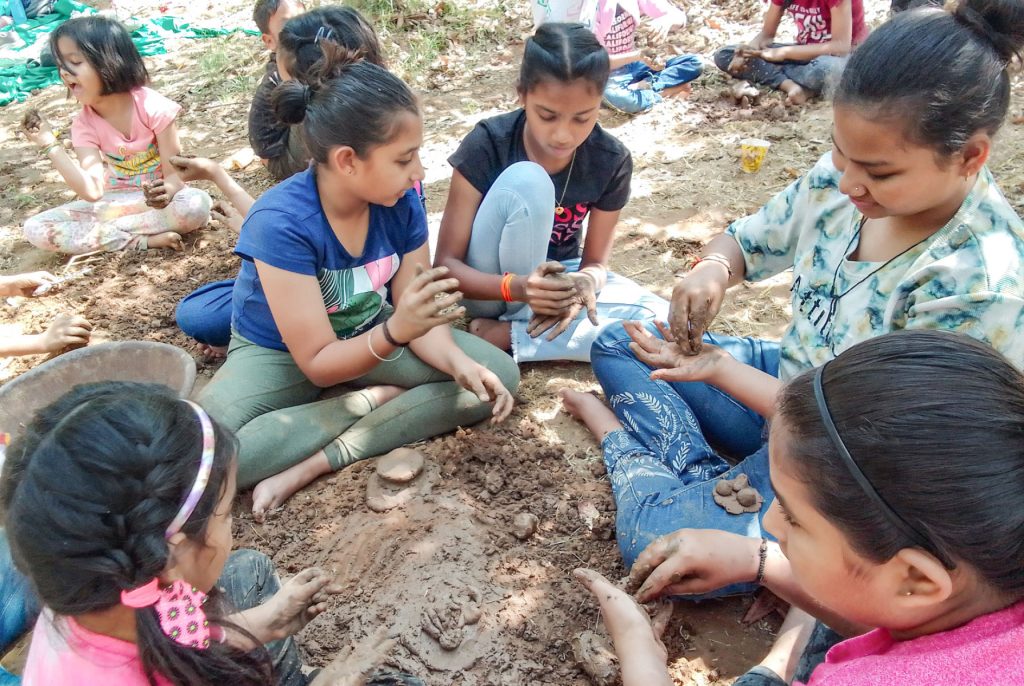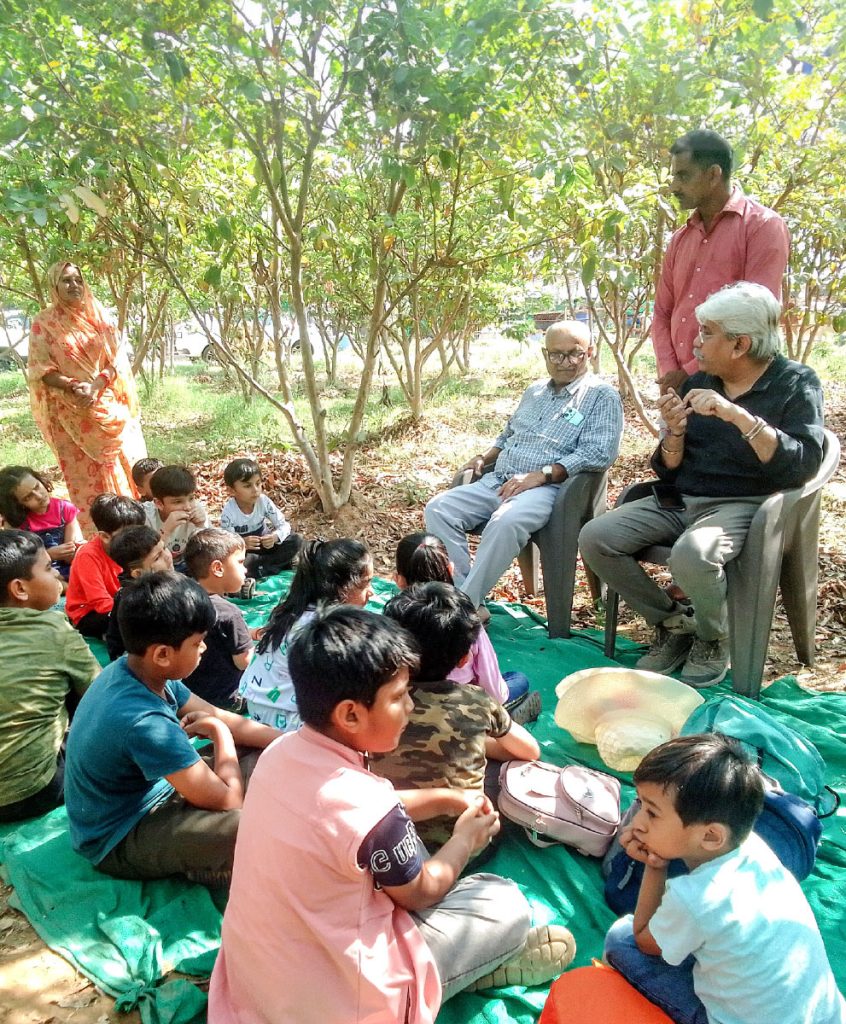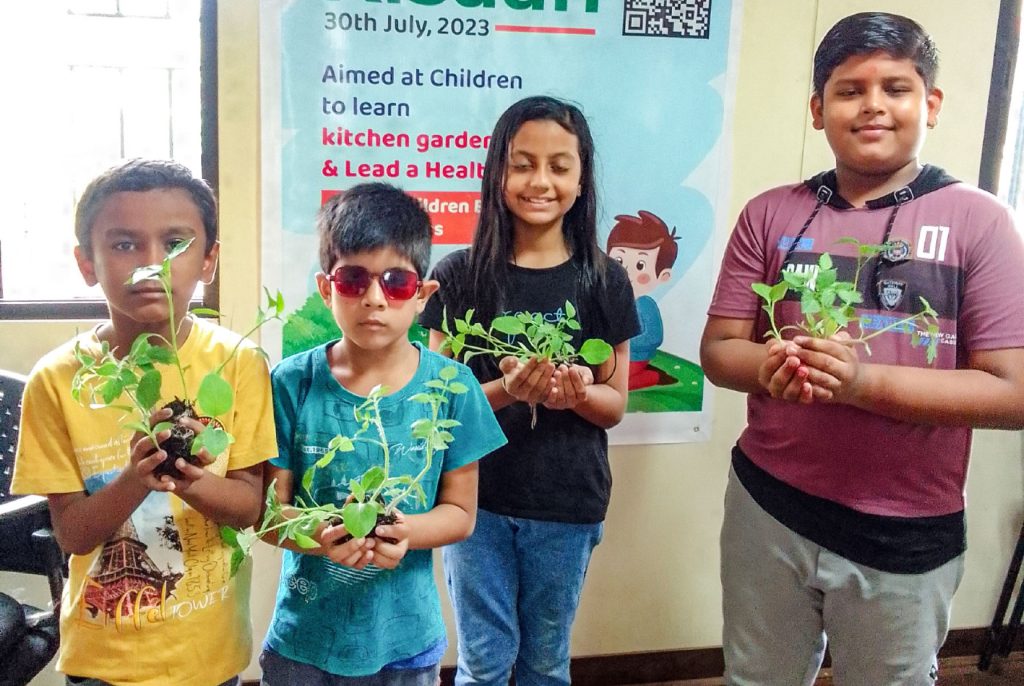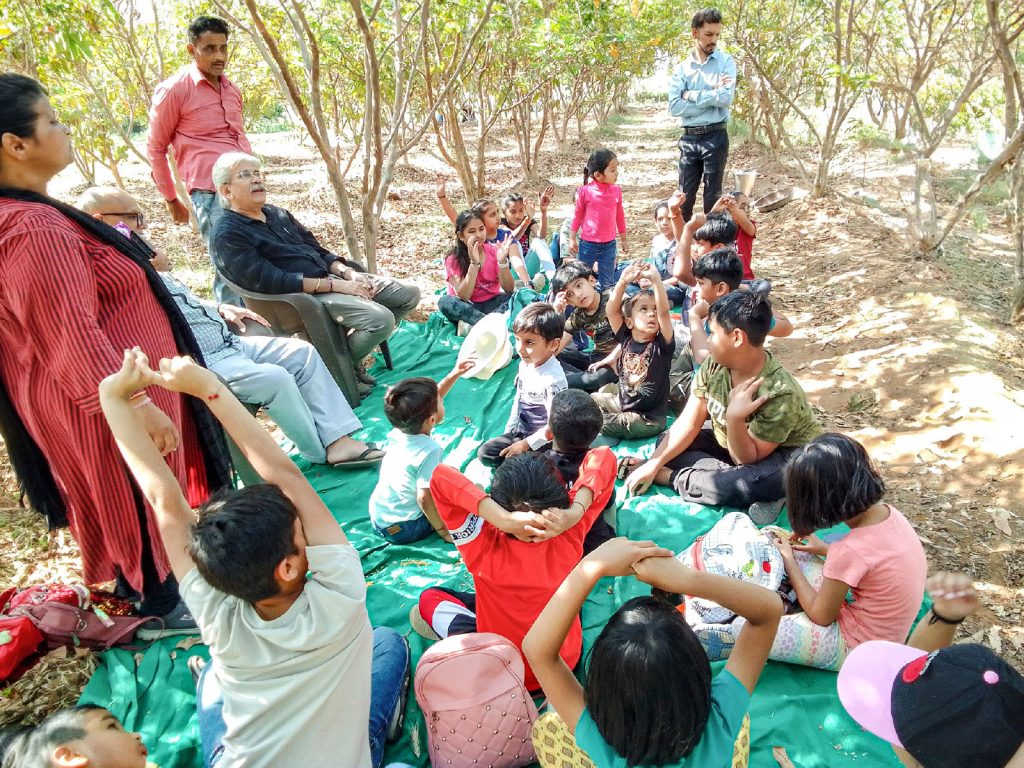For the batch of 30 schoolchildren who participate in a session of fun-filled farming initiative of RC Gandhinagar, RID 3055, titled Kids’ Farm School, it is an exciting day, connecting with nature and the farmers who work hard to put food on our table.
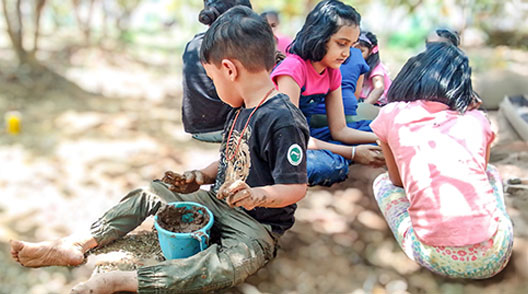
Designed to provide children in the age group 7–14, “an enriching hands-on farming experience to foster a deeper connection with nature, sustainable agriculture and the environment, our club has been organising this programme to give children an opportunity to engage firsthand with farming practices,” says Amit Gohel, secretary of the club.
But the real brain behind this exercise, he adds, is past president of the club Nitin Padariya, who has “collaborated with a couple of educated local farmers to allow us to use their land for a worthy cause such as exposing children of the present era, most of whom are detached from mainstream agriculture, to learn all about field crops, the importance of nutrients that need to go into farm produce, role of domestic animals in agriculture, contemporary equipment and technology that goes into farming and importance of group effort necessary for sustainable agriculture.”
The club has been working towards this lofty objective for nearly five years, says Padariya, who is personally involved in the picnic-like, fun-filled but rewardingly educative experience nearly 60,000 children in and around Gandhinagar have had thanks to this project.
Explaining this initiative for children, he says that he has chosen a suitable farm in Gandhinagar, where the children can enjoy a first-hand experience with fruit trees such as guava, mangoes, apples, growing of herbs such as coriander and mint leaves, learn about medicinal plants, and enjoy healthy and tasty farm fresh vegetables served to them as a tasty snack. “In the morning, when the children come in, they are served a snack made with healthy ingredients such as sprouted channa, moong, etc, and it is compulsory that all children eat this, and they do.”
What they can’t do at home… that is, get their hands and clothes dirty in mud and sand, they are able to do here, and they enjoy this activity immensely.
– Nitin Padariya, past president, RC Gandhinagar
There is a spot, where on a raised round platform a lot of mud and sand are kept for the children to play and build objects of their choice. “What they can’t do at home… that is, get their hands and clothes dirty in mud and sand, they are able to do here, and they enjoy this activity immensely,” he laughs.
After indulging in this group activity for about an hour or so, the children are allowed to use a freshwater pond on the farm to clean themselves and their clothes. A hose is kept handy and the fun they have while splashing water on each other while they wash off the mud from their hands and feet can well be imagined.
Next comes the part when they are introduced to the farm animals, mostly cows, and they are given the task of feeding grass to the animals. After this, either an agri expert or an experienced farmer explains to them the intricacies of irrigating a field, the various crop patterns, and some facets of sustainable agriculture, and its importance for a well- balanced ecosystem.
More than anything else, it teaches the children the deep relationship between agriculture and environment, and how responsible use of what Mother Earth has given us results in sustainable farming.
“We then serve them a banana, which they have to eat and then they open their tiffin boxes for lunch. By this time, they are so hungry that they polish off everything they have brought from home; those who haven’t brought something from home are served from what we have made at the farm. They are also given a salad made of vegetables and fruits such as cucumber, mangoes, tomato etc, and this too is compulsory for them to eat, as it is filled with healthy nutrients,” says Padariya.
At the end of the day, the children return home with a gift bag, and the goodies include not only seeds and seedlings of interesting herbs, vegetables and fruits, that can be planted and nurtured in their own kitchen gardens, so that the child remains engaged with this green initiative, but also interesting aids for their creative learning.
Gohel adds that at a time a batch of 30 children are brought to this ‘farm school’ sessions that are held once or twice a month on Sundays and a few members from their club also attend it. Of course project chair Padariya attends all the sessions as he is deeply involved in this project. “We charge a nominal sum of ₹50 to ₹100 per child for this visit, not to get funds, but because if the registration is free, both the school authorities and the parents may take it lightly and not actually send the children after registering. The money collected is given to the farmers who give us their land for this initiative,” he says.
While this year, this project goes by the name ‘Kids Farming School’, the club has been organising such an initiative for the last five years. In its earlier avatar, this was known as Chhote Kisan. Padariya estimates that over 50,000 children have participated in RC Gandhinagar’s initiative during the last five years to connect children with farming and give them a sense of how important it is to be in physical touch with our roots… and Planet Earth.
Gohel adds that he is happy that this project is “instilling in our children a positive connect to the soil and the environment, and we hope that through this the children will develop a heightened environmental awareness and a deeper understanding of agricultural processes. In the process we are also instilling in them healthy eating habits through the organically grown and nutritious farm fresh produce that we serve them.”
This is also an opportunity for the young ones to venture beyond their classrooms, and enjoy nature while getting a hands-on experience in modern-day farming and a real look at the immense hard work our farmers are putting into growing food for us, adds Padariya.
While the consumers get farm fresh, organic products the farmers get a better return for their hard work as in this transaction the middlemen are eliminated.
Gohel says that gradually more schools are showing interest in participating in this initiative which is really a valuable educational experience for their students to learn all about the “appropriate use of farm machinery, sowing seeds, cultivation, harvesting, identification of different trees and plants, medicinal use of various plants, cattle management etc from experienced mentors/farmers. More than anything else, it teaches them the deep relationship between agriculture and environment, and how responsible use of what Mother Earth has given us results in sustainable farming.”
Both Gohel and Padariya are engineers, with the latter’s larger family being still engaged in agriculture. “For Rotarians like me this project gives an opportunity to take our families out for a weekend activity which is close to nature,” says the club secretary.
One of the biggest positive fallouts of this project is the direct connect between parents of the children who attend this project and the local farmers. The parents who come to drop their children are now in direct touch with the farmers, and make use of this opportunity to buy farm produce directly from them. While the consumers get farm fresh, organic products — gradually the farmers have stopped using pesticides in their farms — the farmers get a better return for their hard work as in this transaction the middlemen are eliminated.






